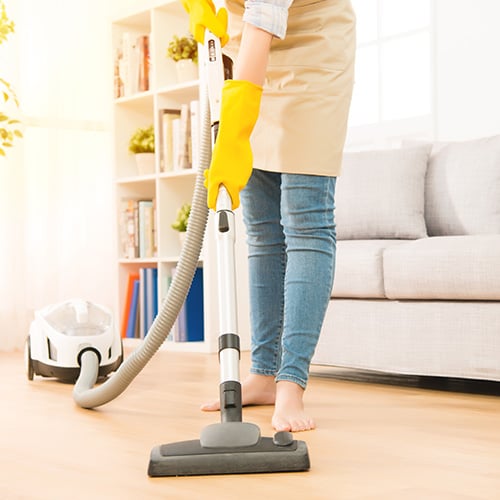Sneezing, runny and itchy nose, and watery eyes – these are just some of the most common symptoms of allergic reactions. While these reactions can occur anytime and anywhere, in a lot of cases you may struggle with these even when you are at home.
Some of the products you may have in your home can be sources of allergens, or substances that trigger these reactions. Common examples of allergens found in your home include:
- Dust mites
- Cockroaches
- Pets like cats and dogs (most likely because of their fur, dander or dead skin residue, saliva, or urine)
- Soft furniture
- Stuffed toys
- Certain beddings or pillows
- Carpets
- Indoor plants
- Mold and damp in certain areas
You deserve to enjoy life at home without worrying too much about sudden allergy attacks. As such, here are some tips that may help you get rid of these pesky allergens and reduce your risk for allergy attacks.
- Clean surfaces and floors.
This is definitely the tip to remember if you want to lessen allergens in your home. While weekly cleaning is most often recommended, if you have enough time in your day to clean even a small portion of your home, do it.
Work on surfaces that are prone to dust and germs, and clean items like ceiling fans, blinds, and/or curtains that may trap allergens. Use a damp cloth so it may “trap” dust on the surface and prevent them from circulating in the air.
If there are clothes, boxes, or packages, sort them and put them in their proper place to prevent dust and even cockroaches from accumulating.
Thoroughly clean and scrub tiles in your bathroom as well to prevent mold formation. If you have shower curtains, see to it that these are frequently cleaned.
What you use to clean matters too, so opt for products without any fragrances or scents, as these can trigger allergic reactions. Wear a well-fitted face mask while you are cleaning so you will not be exposed to allergens. - Invest in items with HEPA filters.
High-efficiency particulate air or HEPA filters have been gaining popularity in recent years for their potential positive impacts on air quality. For people suffering from allergy symptoms, items with these filters can be beneficial as these help trap allergens like dust, pollen, pet dander, and cigarette smoke.
In fact, a 2020 clinical study by Park and co-authors from South Korea noted that people with allergic rhinitis symptoms due to dust mites had fewer medicine requirements after they used air purifiers for six weeks.
Search for and/or invest in air purifiers and vacuum cleaners with these particular filters may be beneficial in removing allergens from your home and preventing allergic reactions. - Remove shoes before entering your home.
In some households, guests and residents are asked to take their shoes off before entering – and with good reason. Your shoes can carry pollen, dust, or allergy-causing germs that may enter your home and cause reactions. Removing shoes before entering your home can stop allergens from entering your home. - Make changes in your bedroom.
Some items found in bedrooms can trap dust and other allergens, allowing these materials to circulate in the space and cause allergic reactions. To prevent these instances, cover your mattresses and pillows with dust-proof covers.
If possible, avoid bedroom products made of feathers and wool and switch to products with synthetic materials. Keep your set-up simple too, and remove throw pillows, fabric curtains, and/or carpets. Lastly, wash your bedsheets, pillowcases, or blankets once a week.
Should allergic reactions still be bothersome for you, ask your doctor about allergy medicines like RiteMED Loratadine 10 mg tablet or RiteMED Ceterizine 10 mg tablet. These particular medicines contain known antihistamines that can help relieve allergy symptoms.Moreover, if you experience allergic reactions that may be life-threatening, seek medical attention immediately.
References:
https://www.ncbi.nlm.nih.gov/pmc/articles/PMC7393300/
https://www.nhs.uk/medicines/hydrocortisone/
https://www.aafa.org/control-indoor-allergens/
https://www.mayoclinic.org/diseases-conditions/pet-allergy/symptoms-causes/syc-20352192
https://www.aaaai.org/tools-for-the-public/conditions-library/allergies/indoor-allergens-ttr
https://www.verywellhealth.com/carpet-allergies-5205907
https://www.thespruce.com/cleaning-tips-to-reduce-allergens-4138161 https://www.webmd.com/allergies/hepa-filters-for-allergies
https://www.webmd.com/allergies/features/allergy-tips
https://www.webmd.com/allergies/allergies-bedroom
https://www.bhg.com/homekeeping/house-cleaning/tips/reduce-allergens-in-home/








